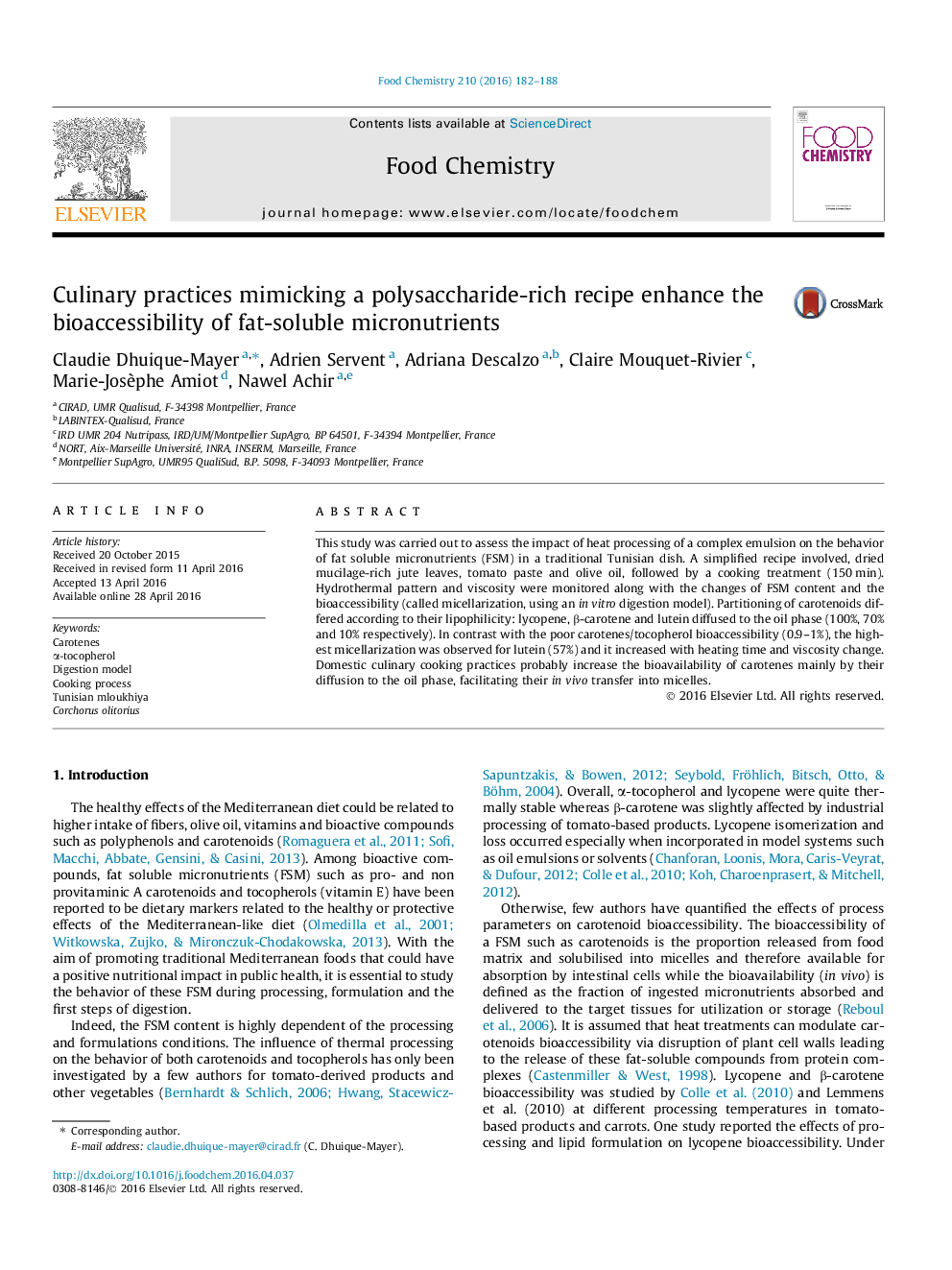| Article ID | Journal | Published Year | Pages | File Type |
|---|---|---|---|---|
| 7588132 | Food Chemistry | 2016 | 7 Pages |
Abstract
This study was carried out to assess the impact of heat processing of a complex emulsion on the behavior of fat soluble micronutrients (FSM) in a traditional Tunisian dish. A simplified recipe involved, dried mucilage-rich jute leaves, tomato paste and olive oil, followed by a cooking treatment (150 min). Hydrothermal pattern and viscosity were monitored along with the changes of FSM content and the bioaccessibility (called micellarization, using an in vitro digestion model). Partitioning of carotenoids differed according to their lipophilicity: lycopene, β-carotene and lutein diffused to the oil phase (100%, 70% and 10% respectively). In contrast with the poor carotenes/tocopherol bioaccessibility (0.9-1%), the highest micellarization was observed for lutein (57%) and it increased with heating time and viscosity change. Domestic culinary cooking practices probably increase the bioavailability of carotenes mainly by their diffusion to the oil phase, facilitating their in vivo transfer into micelles.
Related Topics
Physical Sciences and Engineering
Chemistry
Analytical Chemistry
Authors
Claudie Dhuique-Mayer, Adrien Servent, Adriana Descalzo, Claire Mouquet-Rivier, Marie-Josèphe Amiot, Nawel Achir,
